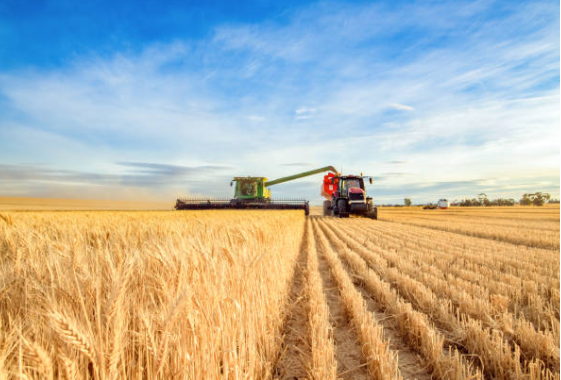
Exhibition time: 17-19 March, 2026 Shanghai, China
 中文
中文

Exhibition time: 17-19 March, 2026 Shanghai, China
 中文
中文

As the global population is projected to reach 9.7 billion by 2050, ensuring food security will only become more critical. Fertilizer is the backbone of the agri-food sector, responsible for nearly half of the world’s food production.
As the global population is projected to reach 9.7 billion by 2050, ensuring food security will only become more critical. Fertilizer is the backbone of the agri-food sector, responsible for nearly half of the world’s food production.
Nitrogen, potassium, and phosphate – commonly known as NPK – play essential roles not only in increasing yields but also in improving the taste, texture, and nutritional value of food. For example, nitrogen supports the growth of leafy greens like spinach and lettuce, potassium enhances the sweetness and firmness of strawberries, and phosphorus is essential for the ripening of tomatoes.
Recently, we celebrated Global Fertilizer Day to honour the invention of the Haber-Bosch process to synthesise ammonia and the beginning of the green revolution that pulled millions of people out of famine and poverty, further demonstrating fertilizer’s role in global food security.
Canada is fortunate to produce two of these key nutrients – nitrogen and potash – which enables Canadian farmers and farmers worldwide, including allied nations, to access high-quality fertilizer produced under rigorous safety standards. According to studies from WSP and Cheminfo Services Inc., Canada also produces fertilizer with lower emissions intensity than our global competitors.
Fertilizer Canada has contributed to nutrient stewardship for over a decade through the 4R Nutrient Stewardship program, advocating for the right nutrient source, applied at the right rate, time, and place. This science-backed approach helps farmers optimise fertilizer use, improving agricultural productivity, farm profits, and soil health. Supporting farmers in adopting 4R practices requires ongoing investment. While current incentive programs, like the On-Farm Climate Action Fund, are a start, there is a need to see significantly more support that is not solely dependent on government funding. A comprehensive carbon credit system based on a 4R Climate-Smart Protocol would help create a self-sustaining framework. Such a system, enabled by a national carbon market that aligns with existing provincial systems, could enhance our global leadership in responsible agriculture.
As companies compete in a global fertilizer market, it’s essential to recognise the unique challenges faced by Canadian producers. Competitors, such as Russia, Belarus, operate without the same environmental and ethical standards, putting Canada at a disadvantage. Protecting Canadian industry means safeguarding over 100 000 Canadian jobs and ensuring a reliable supply of fertilizer to Canadian and international farmers, all while preventing carbon leakage to products from jurisdictions with higher emissions intensity from gaining market share. The Canadian government has taken steps to support industry with clean investment tax credits (ITCs) aimed at decarbonisation, but improvements are needed. The current limitations on ITCs must be addressed – extending the timeline, value, and scope to ensure they are effective for the Canadian fertilizer sector. Investment in decarbonisation technologies takes significant time and money, and the Canadian government needs to better assess the impact of environmental regulations on the Canadian fertilizer industry’s competitiveness and introduce more ambitious support.
Logistics also plays a critical role in the success of the sector. Fertilizer production is heavily concentrated in the Prairies, and timely delivery depends on reliable rail and port operations. The window to fertilizer crops is very short, and farmers have little flexibility. They rely on us to produce fertilizer, and we rely on our supply chains to get it to them. Since 2018, frequent labour disruptions have undermined Canada’s reputation as a reliable trading partner, costing our industry nearly CA$1 billion in lost sales revenue alone. To protect food security, fertilizer should be recognised as an essential good and the Canada Labour Code should be updated to ensure fertilizer products continue to move during labour disruptions.
Canada’s fertilizer industry is essential not only for the country’s food security but also for the world’s. As we look to the future, we must safeguard domestic production capacity to ensure there is not a reliant on other countries for the essential inputs necessary to grow the food needed. Competitiveness needs to be protected by being more thoughtful with environmental regulations, more ambitious with incentives, including enhancing ITCs, strengthening supply chains, and supporting farmers by increasing the adoption of advanced 4R best management practices. This will keep Canada at the forefront of responsible agriculture and help meet the challenge of feeding a growing global population.
Source:worldfertilizer.com